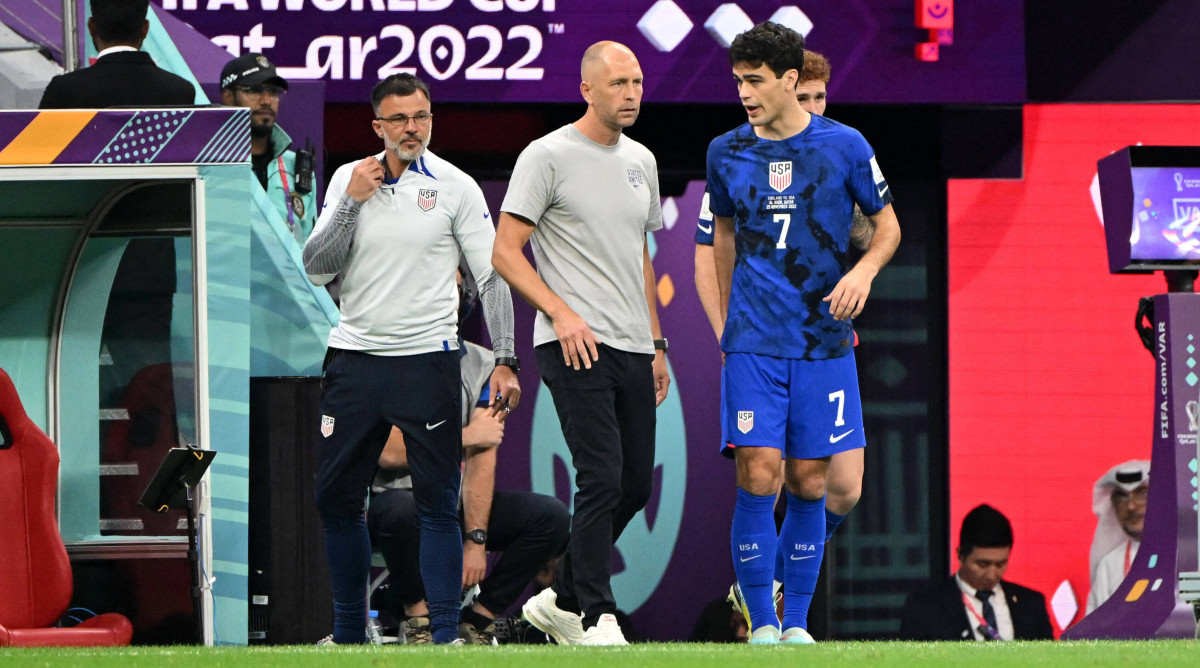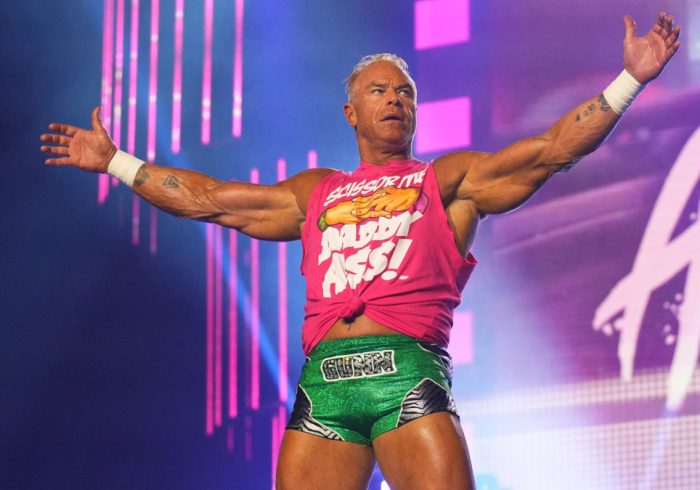Despite the regret, strain and “sadness” resulting from the shocking revelations about his feud with the Reyna family and a violent 1991 episode with the woman who became his wife—not to mention the subsequent U.S. Soccer Federation (USSF) investigation—Gregg Berhalter said Thursday that he’s interested in a second cycle as men’s national team coach.
Berhalter’s contract expired Dec. 31. This month’s camp and friendlies will be run by former assistant Anthony Hudson.
In his first public, on-the-record appearance since the end of the World Cup, Berhalter said, “It’s a fantastic group of players—a super-high potential in this group—and we’re competing in the World Cup in North America in 2026.
“When we started in 2018, we wanted to change the way the world views American soccer, and I think when you ask around the world now about our team, the world sees us in a completely different light,” he continued during an appearance on a Harvard Business Review broadcast. “But now it’s about how you take that next step, and that next step is doing something that no U.S. team [since 1930] has ever done and that’s get to the semifinals and see what happens from there. So there’s a lot of great challenges involved, and of course I’d like to continue in my role.”
Berhalter and Reyna have been at the center of an ugly feud between the two families.
IMAGO/Matthias Koch
Assuming that’s sincere, Berhalter’s professional fate now is mostly in the hands of USSF sporting director Earnie Stewart, who hired his former teammate at the end of 2018. Stewart planned on leading a thorough review of the men’s program following the round-of-16 loss to the Netherlands on Dec. 3. That process has been complicated, however, by events this month.
On Dec. 6, Berhalter spoke to a leadership conference in New York City and in comments he thought were off the record, detailed how the U.S. handled an unhappy and underperforming player during the World Cup. Those comments went public a few days later and the player was identified as Gio Reyna, the talented 20-year-old Borussia Dortmund attacker who made just two appearances as a sub in Qatar.
Angered by the controversy surrounding her son, Danielle Reyna—Gio’s mother and a former roommate and college teammate of Berhalter’s wife, Rosalind—went to Stewart with details of the night Gregg kicked Rosalind following an argument. The couple, then college freshmen, reconciled, eventually married and have four children. But Stewart felt compelled to report what he’d heard, and the USSF then contracted a law firm to conduct an independent investigation that’s stalled the hiring process. Federation officials have said that the ongoing investigation now involves looking into “inappropriate communication and behavior” directed toward other U.S. Soccer staff.
The Berhalters issued a statement Tuesday acknowledging the 1991 incident. Asked during Thursday’s presentation about his reaction to the past few days, Berhalter said, “I think it’s sadness.
“Our entire family is saddened by these events. [It’s] something we want to move forward from. As we said in the statement, it was something that we didn’t hide from back then and we weren’t prepared to hide from it now,” he continued. “I think the worst part of it for me is, my heart aches for my wife because it was her story to tell—if she chose to or not. And that’s what just really, really saddens me. But it’s [about] moving forward, and that’s the way we have to look at it together as a family. … I feel tremendously bad that my profession had to bring this to the public light.”
If Berhalter does wind up moving forward with U.S. Soccer, he’ll likely have to explain to players why he discussed locker room issues in a public, even off-the-record, setting. Although he never mentioned Reyna by name, and although he said his intention was to discuss the group’s unity and collective “response” to the player’s behavior—Reyna improved and played the second half of the Netherlands match—that wasn’t what hit the headlines. In the end, Berhalter’s comments were surprising, uncharacteristic and unnecessary, and he acknowledged Thursday that they were a mistake.
“We’re always looking to improve. We’re always reflecting and saying, ‘OK, how do we get better,” he said “When you reference that talk, and although you said it wasn’t about a player—it was more about the team and their response—if I had to do it all over again, I wouldn’t have told that story. It just brought too much unwarranted attention to an overall shining example of team culture and teamwork. And so, that would be something that I would go back and change for sure.”
He acknowledged that trust can be fickle, but said he believes that the consistency and connections forged across four years with his staff and players are strong enough to survive the current storm.
“Trust is something that takes a long time to build, but can go away really quickly,” Berhalter said. “You have to be consistent with who you are and you have to have clear values. And if you are, people can see that and they can trust that consistency is there. But it certainly is something that we take very seriously, [that] I take very seriously. My bond with the players is very strong, and it’s about maintaining that bond. I think that the players and the staff know who I am and know what I stand for.”



